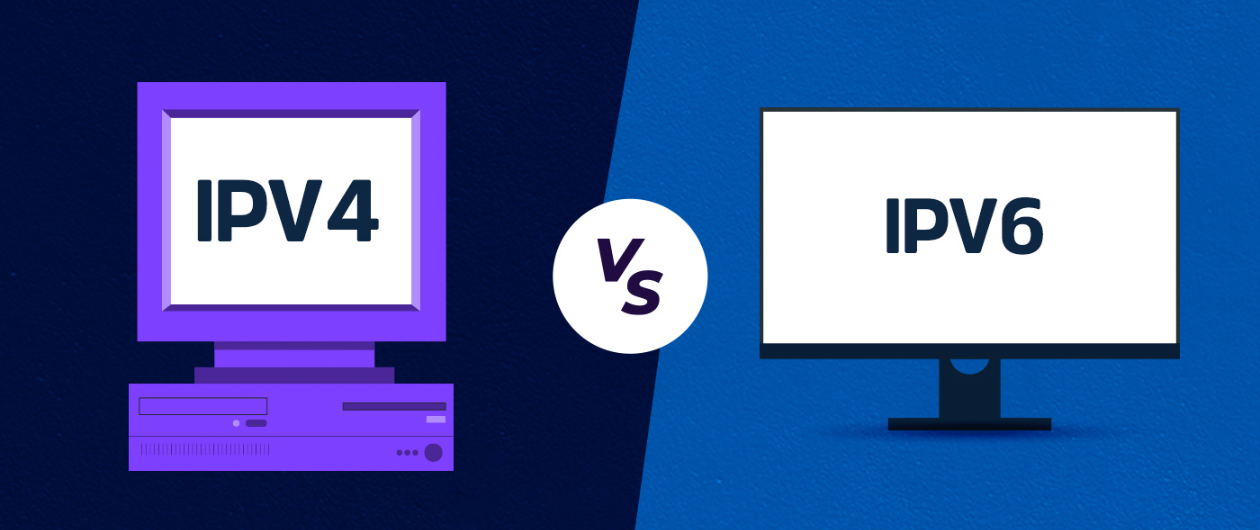-
Comparison of performance and security between IPv4 and IPv6
IPv4, version 4 of the Internet Protocol, is one of the basic communication protocols that make up the Internet today. Since its release in 1981, IPv4 has played a crucial role in promoting the development of the Internet. However, with the rapid expansion of the scale of the Internet and the surge in the number of devices, IPv4 address resources have gradually exhausted, becoming a bottleneck restricting the further development of the Internet. In order to solve this problem, IPv6 came into being. IPv6 is the sixth version of the Internet Protocol and is the first version of the I…
-
Why is it difficult for proxy IP to be 100% available?
In today's network environment, proxy IP has become an important supporting tool for many network activities and services. However, although proxy IP services play an indispensable role in many aspects such as data collection and business promotion, their usability is often difficult to reach perfect 100%. The reasons behind this are complex and diverse, involving multiple aspects such as technology, management, network environment and user behavior. This situation is not accidental, but is influenced by multiple and complex factors that together constitute a generation of…
-
IP blacklist and IP whitelist: Definition and role
In the use of IP proxies, we often hear the terms blacklist and whitelist. They not only provide a powerful defense mechanism, but also can flexibly respond to different security threats. This article will discuss in detail the dual barrier role of IP blacklists and whitelists in network security. IP blacklist An IP blacklist is a list of IP addresses that are not allowed to access specific resources or services. When an IP address is blacklisted, it will be denied access to relevant network resources or services by the system. Black…
-
How to use proxy IP for cross-border e-commerce to select products
In the field of cross-border e-commerce, product selection is a crucial part, which is directly related to sales performance and market competitiveness. In order to more accurately grasp market demand, understand competitors and discover potential business opportunities, more and more cross-border e-commerce companies have begun to use agent IP to select products. So, what are the main reasons why cross-border e-commerce values product selection? Cross-border e-commerce companies value product selection mainly for the following reasons: Understand consumer needs: Accurate product selection can better meet consumer needs and preferences. E-commerce Ping…
-
What is transit IP? What is the specific role of transferring IP?
Today, as the globalization process continues to accelerate, more and more companies and individuals are beginning to set foot in the international market. This is the so-called "going out to sea". When conducting cross-border e-commerce, international marketing or data collection and other activities, an important technical means involved is transferring IP. The specific role of this IP technology can be reflected in the following three aspects. 1. Definition and Function of Transit IP Transit IP, as the name suggests, is an IP address that serves as a transit station during network data transmission. When data…
-
What is the reason for Facebook Live Broadcast's current restriction? Is it the IP address?
With the vigorous development of the social media and live broadcast industry, Facebook Live has become an important platform for many companies and individuals to promote brand, product display and interactive exchanges. However, while enjoying the convenience and benefits brought by live broadcasts, many users are also facing the problem of live broadcasts being restricted. This article will discuss the reasons for Facebook's live streaming traffic restrictions and propose corresponding countermeasures. 1. Understand the reasons for Facebook live streaming restrictions 1. Content quality and interactivity: …
-
How to use overseas IP proxies to expand data services
In today's globalization, data services have become an important driving force for enterprise development. However, issues such as geographical restrictions and network blockages often hinder our access to global data. At this time, overseas IP proxies, as an effective network technology tool, can help us break through these limitations and achieve global expansion of data services. 1. Role of Overseas IP Proxy Overseas IP Proxy is a technology that can hide a user's real IP address and simulate network access from other countries or regions. Pass…
-
Can using local residential IP increase the exposure of Amazon's cross-border stores?
In today's increasingly competitive cross-border e-commerce, Amazon sellers are constantly exploring various ways to increase store exposure and sales. Among them, using local residential IP as a potential strategy has high hopes among some sellers. This article will explore whether using local residential IP can effectively increase the exposure of Amazon's cross-border stores, and analyze its feasibility and potential impact. 1. The basic concept of local residential IP Local residential IP refers to the real IP address allocated to home users. These IP addresses…
-
What is short-acting IP used for? Which scenarios apply to
With the continuous development of Internet technology, the needs of network applications are increasingly diversified. Short-effect IP (Short-effect Proxy IP), as a flexible network tool, plays an important role in many fields and scenarios. This article will delve into the wide use of short-acting IP and its practical applications in different fields. 1. The basic concept of short-term IP Short-term IP, namely short-term proxy IP, refers to proxy IP addresses that have a relatively short use time, usually ranging from a few minutes to a few hours. With traditional…
-
What is the difference between SOCKS4 and SOCKS5?
SOCKS4 and SOCKS5 are two commonly used network proxy protocols. They have some key differences in functions, performance and application scenarios. The following is a detailed analysis of the differences between the two protocols: 1. Supported protocol types SOCKS4: Only TCP protocol (Transmission Control Protocol) is supported. This means that the SOCKS4 proxy can only be used for network applications based on TCP connections. For applications that need to communicate over the UDP protocol (such as online games, voice calls, etc.)
Related Recommendations
- 98IP tells you the key points of distributed crawler design
- Proxy IP and web crawler: The secret to breaking through the anti-crawling mechanism of websites
- Multi-scenario proxy IP: Meet your various network needs
- Analysis of common reasons that lead to frequent proxy IP drops
- What are the advantages of dynamic IP
- Exclusive static residential IP: stable, high-speed, and secure, creating a dedicated network channel
- What are the advantages of exclusive IP?
- Multi-window IP proxy building guide
- Building efficient web crawlers: A method for establishing and maintaining proxy IP pools
- How can HTTP proxy IP help companies meet price tracking challenges?











